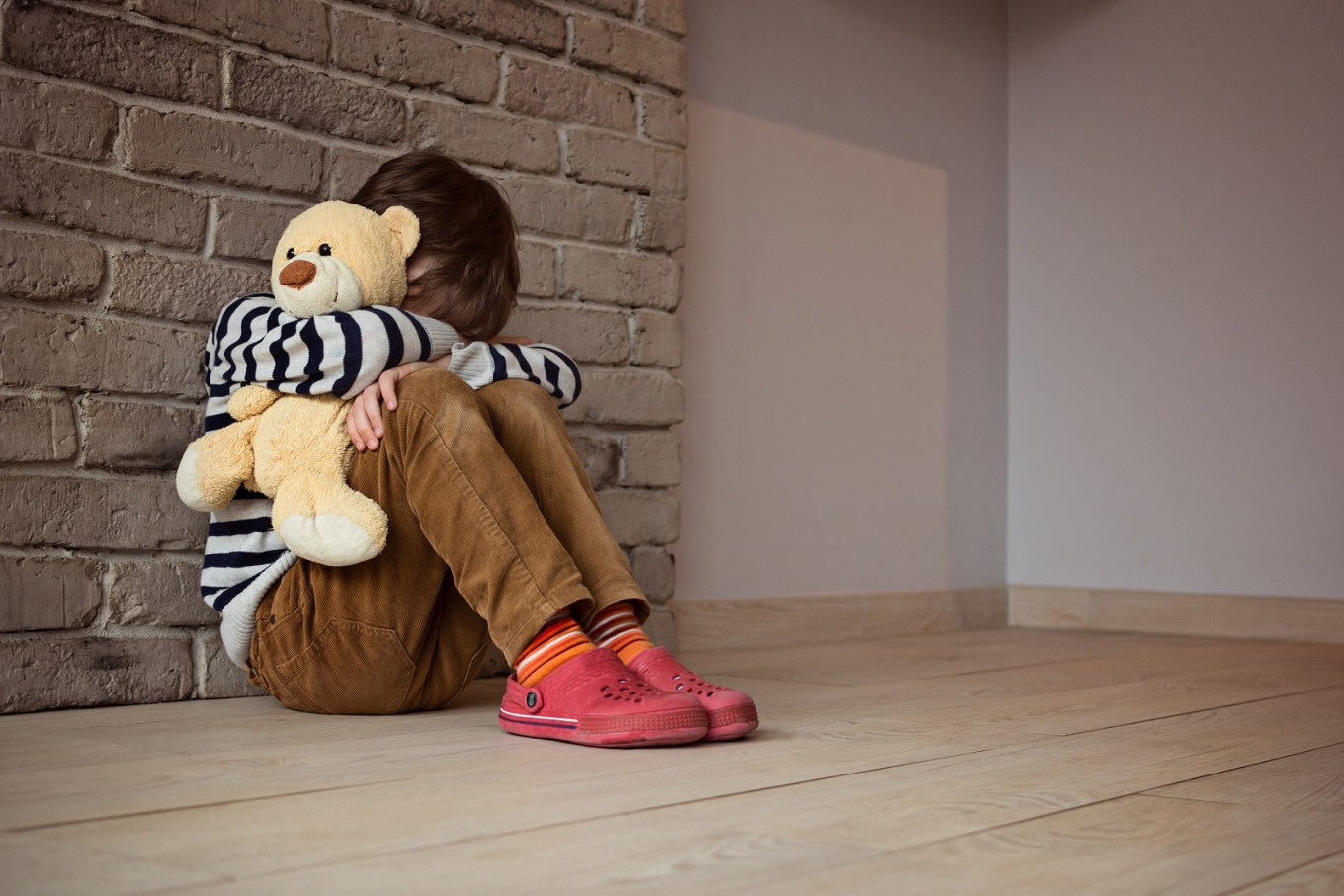Popular Reads
Top Results
Can't find what you're looking for?
View all search resultsPopular Reads
Top Results
Can't find what you're looking for?
View all search resultsSix reasons behind children’s stress and how to help them overcome
Change text size
Gift Premium Articles
to Anyone
T
hose who think children are free from being stressed out may want to think again. Although seemingly carefree and full of happiness, children’s and teenagers’ school and playground life could be a source of many problems: Peer pressure, homework, bullies and many others we don’t expect.
Hello! magazine points out that according to studies, almost one in four young people below the age of 19 is likely to be depressed, and experts at Chartered Accountants Benevolent Association (CABA) list common causes of stress and how to support stressed-out children and teenagers.
1. Lessons at school and homework
Schools should be the place for education and finding new friends. Instead, having lessons during the day and finishing homework in the evening can be overwhelming. Some children feel they have difficulties keeping up with the lessons, and this leads to stress. Lacking playtime because of too many lessons to work on and homework to finish could be frustrating, too.
2. Fear of failure in exams
Studying for exams and waiting for the results mean pressure for young ones. Fear of failure or disappointing parents heighten the children’s concerns as well. Hello! refers to the counseling services for children and young people, Childline, which says those aged 12 – 15-year-olds are the most likely to seek help regarding stressful exam season. They cite depression, anxiety, panic attacks and low self-esteem as consequences of exam stress.
3. ‘Social life’
Most people, including children, feel bad if they don’t feel accepted at school, in the neighborhood or in other surroundings. However, fitting in is not always easy. Children may feel obliged to do certain things they don’t like in order to fit in, and this can cause a lot of stress.
4. Bullies
There are, unfortunately, those who like to harm or intimidate others who seem to be more vulnerable. They are almost everywhere including at school and in the neighborhood. The UK’s National Society for the Prevention of Cruelty to Children (NSPCC), says that there are tens of thousands of young people skipping school because of bullies. Those who are bullied may appear withdrawn and nervous. They may also perform poorly at school, make up reasons to stay home on school days or have mysterious injuries and trouble sleeping and eating.
5. Terrors, disasters
Children may have an understanding of what is being presented in the news, such as war, natural disasters and terrorism. While the news makes them worry about themselves, family and friends, they also become stressed out.
6. Family issues
Internal problems, changes in everyday life such as parents getting a divorce or relocation can lead a child into stress. In a case where you have noticed signs of stress in your children, it is wise to provide help.
Read also: Parents' stress at work may affect the well-being of their children
Below is what you can do to help stressed-out children:
- Spend time with them
No matter how busy you are, make time for your children. When you think they are suffering from stress, spend time together more than usual. Involve them in fun activities and make them comfortable when staying in the same room with you. However, never force them to share their worries. They need time to open up and should feel comfortable.
- Restful sleep
Make sure children sleep as long as they need to according to their ages. It is said that having sufficient sleep and rest empowers them more to avoid stress.
- Provide healthy food on the table
Healthy food is essential in everyone’s life, especially children’s. Their daily intake should include at least five portions of fruit and vegetables every day. Even if a child refuses fruit or vegetables, there are many inventive ways to serve appetizing fruit and vegetables.
- Normalize stress
You cannot protect your kids from experiencing stress, but you can help them find a way to cope with it by assuring them that feeling stressed is normal. Explain to them that stress at certain levels is normal and it happens to everyone. Talking about your own experience and giving tips can help them to manage stress.
- Keep them active
Make sure your children get plenty of exercise since physical activity is a great way to manage stress. Also, relaxation techniques and breathing exercises can be helpful. Be a role model to whom children can look up, especially when it comes to tackling stress. However, if your children show signs of depression, getting professional help is the best decision. (sop/mut)
Your Opinion Matters
Share your experiences, suggestions, and any issues you've encountered on The Jakarta Post. We're here to listen.
Thank you
Thank you for sharing your thoughts. We appreciate your feedback.











